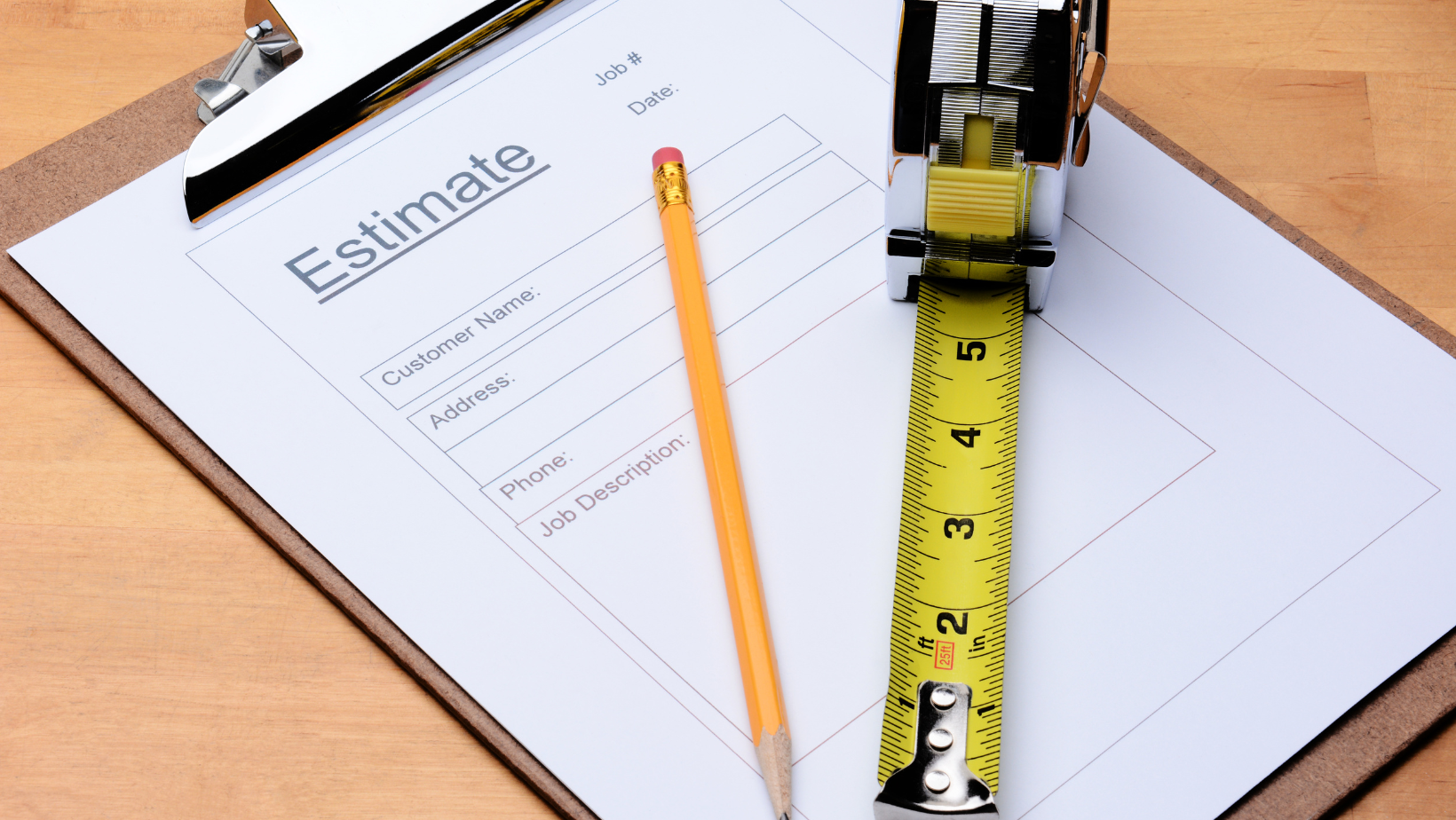
California is a dream destination for many people, with its sunny beaches, Hollywood glamour, and diverse culture. But for construction contractors, it can also be a tax nightmare, especially when it comes to tangible personal property (TPP). TPP is any physical item that can be seen, weighed, measured, felt, or touched, such as tools, materials, equipment, or fixtures.
Do contractors charge sales tax in California on TPP? The answer is not so simple. It depends on several factors, such as your contract type, the type of property involved, and the project's location. This article will explain the basics of California's TPP tax for construction contractors and help you navigate this complex and confusing topic.
So what's this TPP business all about, you may ask? Tangible Personal Property (TPP) refers to any physical item that can be felt, touched, or seen. We're talking about those bulldozers you move earth with, the trusty tool belt you strap on each morning, and even the humble pencil behind your ear. These are all examples of TPP. In the eyes of California's tax law, these items used in the course of your construction work are taxable.
Yes, you heard that right. The state's tax collector is interested in your excavator and that shiny new power drill. But it doesn't stop there. Even when you lease equipment, like, let's say, a cherry picker for those hard-to-reach projects, you're still on the hook for taxes. The same applies if you sell your old jackhammer, the one that's been your trusty companion since your first gig. The profit from that sale? Yep, taxable! It's a fine mess, isn't it? But fear not; keep reading, and you'll find a way out of this conundrum.

If you plan to use, lease, or sell a TPP item as part of your construction work, it's important to be aware of certain factors before you make any moves. These include:
The type of property you use in your construction work is an important factor to consider when paying taxes on TPP. Depending on the makeup of the asset, whether it's a long-term lease or short-term rental, and other such details, the applicable taxation policies may vary. For instance, with a leased item that isn't used for more than 180 days, the taxes will be calculated differently than for a sold item.
With each of these scenarios, you need to ensure that you're following time and material contract policies accordingly. Furthermore, if there is any transfer or change in property ownership during your work process, you must check with the authorities and consult a tax expert to understand what taxes apply. Knowing the rules can help you keep your taxes in order and avoid costly mistakes.
Don't be fooled into assuming that all expenses carry the same weight in the eyes of the taxman. The amount you spend on that shiny new bulldozer or the stack of drywall plays a crucial role in determining your tax liability. The more you shell out, the larger your tax burden becomes. Hence, when outlining the budget for a new project, it's crucial to consider the tax implications of those significant purchases.
Let's take the scenario of a state-of-the-art cement mixer with a price tag of $10,000. As per California tax law, you are obligated to pay construction sales tax on this purchase, given that it falls under the category of TPP. Assuming your local tax rate is 8%, the mixer alone would generate a tax liability of $800. Imagine making a dozen TPP purchases like this each year for various projects. These taxes can quickly accumulate, wouldn't you agree? Therefore, before you whip out the company credit card, it's wise to take a moment to assess your purchase's tax implications. Remember that saving a dollar today is equivalent to earning a dollar tomorrow.
If you're based in California, the state's Board of Equalization (BOE) requires that any other tangible personal property purchased outside of California have use taxes assessed at a minimum rate of 8%. If you buy a load of steel beams from an out-of-state supplier and bring it back home to your construction site, you'll be on the hook for that 8% use tax.
If that same purchase had been made in-state, you'd be exempt from this taxation and could avoid a costly surprise come filing season. This is where it pays to shop around before making your purchase. If an out-of-state supplier offers a good deal on materials, be aware of the use tax that may apply if you choose to accept it.
As a contractor, you're likely familiar with the concept of delivery charges when it comes to materials. These fees are necessary to purchase an excavator from an out-of-state supplier and ship it home. The machine costs $2,000, with an additional $400 for shipping. However, there's a catch. You are required to collect sales tax on the entire amount, not just the excavator's price.
California requires a use tax of 8% on the full purchase price of $2,400 in this specific case. It's wise to compare costs before making a decision. You may save money in the long run by finding an in-state supplier with a lower total cost, including the delivery and taxes.
When you enter into a construction contract, the taxes you owe could be reduced drastically if you qualify for certain tax credits. California law allows construction contracts to receive a credit for any TPP sold or leased in the state during the taxable period. Suppose your company purchased an excavator from a California seller and paid an 8% use tax. You could be reimbursed for that sales and use tax if you qualify for the credit. To determine whether or not a tax credit is available to you, check with your local Board of Equalization office.
If you resell a TPP item after it has been used in your construction industry, you could be subject to taxes depending on the circumstances. The key factor here is whether or not the item was acquired for resale purposes or as a part of your lump sum contracts. If you buy and use a crane on your project, the profit from its eventual resale would be subject to taxes. However, you'd be exempt from taxation if you purchased the crane to resell it for a profit right from the start.
As a construction contractor, it's important to understand the tax implications of leasing TPP items for your construction job. Generally speaking, leases of TPP are exempt from taxation if the lessee is a contractor who uses the property for business purposes and paid any applicable sales tax when it was initially purchased. So, if you're considering leasing an excavator for a lump sum contract, check with your local Board of Equalization office about potential applicable taxes. Knowing the tax regulations surrounding TPP can save you from a pleasant surprise when preparing your taxes.
Most contractors purchase construction materials to build something for a client or to resell. In either case, the materials are exempt from taxation if you provide your vendor with proof of exemption. If you buy real property for resell, your vendor should provide you with a resale certificate. This exemption applies only to items bought solely to resell them as is. Any taxable item purchased as a part of a larger job should be taxed according to state law.

As a contractor, there are various benefits to understanding the tax regulations surrounding TPP. Some of these benefits include the following:
When it comes to the tax implications of TPP, accuracy is key. Understanding the various tax rules and regulations can help you avoid costly mistakes when filing your return. For example, if you don't factor in the use tax owed on that major purchase, you could be subject to a hefty state or federal government penalty. Knowledge is power when it comes to taxes, and staying up to date on the rules for TPP can help you stay accurate when filing your return.
Knowing the ins and outs of taxation on TPP allows you to be flexible with purchasing materials for your projects. Buying in bulk or from a different supplier could save you money by avoiding tax liabilities. Knowing the rules can help you make more informed decisions regarding purchasing materials, saving you time and money in the long run.
Awareness of the taxation implications of TPP can help you save money when filing taxes. Several credits, exemptions, and deductions are available to contractors purchasing TPP that can help reduce your tax burden. For example, if you purchase an excavator for a job site from an out-of-state seller, you may qualify for a tax credit on the cost of the item. Knowing about this can help you save money and maximize your profits.
Perhaps the most important benefit of understanding taxation surrounding TPP is avoiding hefty penalties or fees for noncompliance. Failing to pay taxes on materials purchased for construction projects could result in an audit by the IRS, which can be costly and time-consuming. By understanding the rules, you'll be able to anticipate any taxes that may apply and file accurate and compliant taxes.
Tax regulations surrounding TPP can also help with financial planning for your business. Knowing which items are taxable and which ones are exempt can allow you to budget accurately, setting aside the necessary funds to pay taxes on applicable purchases ahead of time. This takes the stress out of tax season and allows you to focus on what matters most: running a successful construction business.
Understanding the tax regulations of TPP can also boost your business's credibility with clients, lenders, and other stakeholders. Not only will it show that you're a professional who takes your business seriously, but it will also demonstrate your commitment to compliance with applicable laws. This can help build trust between you and potential customers or investors.
As a result of the knowledge you gain from understanding TPP taxation, you can position yourself as an expert in your field. This allows you to stand out from the competition and attract more clients looking for reliable professionals with deep experience in construction work.

Despite the many benefits, some drawbacks are associated with understanding taxation on TPP. Here are a few to consider:
Learning about the tax regulations surrounding TPP can be costly in terms of time and energy. You'll need to invest significant effort into researching applicable laws and filing accurate documents. This can be especially challenging if you're new to the industry or have little experience with tax laws.
The tax regulations surrounding TPP are constantly changing, so it's important to stay up-to-date about any changes that may affect your business. This requires frequent research and review of applicable law, which can significantly add to your already demanding workload.
Tax laws are complex and often difficult to understand - even if you have experience filing taxes. For contractors, this complexity is compounded by the different regulations applicable to each state and municipality. Trying to stay on top of all the changes could be overwhelming, especially if you're new to the industry.
Dealing with taxation on TPP can be a frustrating experience for many. From complex laws to constantly changing regulations, staying up-to-date and compliant with all the applicable rules can be difficult. This frustration is only compounded when dealing with auditors or resolving any discrepancies between your filings and what the law requires.
Finally, understanding tax regulations on TPP can help contractors save money and maximize profits. However, if you don't take the time to research and review applicable laws, you may miss out on potential opportunities for deductions or credits that could have been applied to reduce your overall tax burden.
Finding a professional experienced in dealing with taxes on TPP can be difficult, as not many people specialize in this area. This can make it difficult to get the advice you need when filing taxes or working through an audit.
Tax regulations surrounding TPP can have both benefits and drawbacks for contractors. On the one hand, understanding taxation on TPP can help you file accurate taxes, save money through deductions or credits, avoid hefty penalties due to non-compliance, improve financial planning, boost credibility with clients and other stakeholders, and give you a competitive edge in your industry. However, there are also drawbacks associated with learning about the laws, such as costly learning processes, constantly changing regulations, complex legal language, frustration when dealing with filings and audits, and missed opportunities to claim deductions or credits.
Despite the challenges associated with understanding taxation on TPP for contractors, taking the time to research applicable laws can be a valuable investment that will pay off in the long run. If you want to ensure that your taxes are accurate and compliant, investing time and energy into learning about this subject is important.
We care about your data — privacy policy.